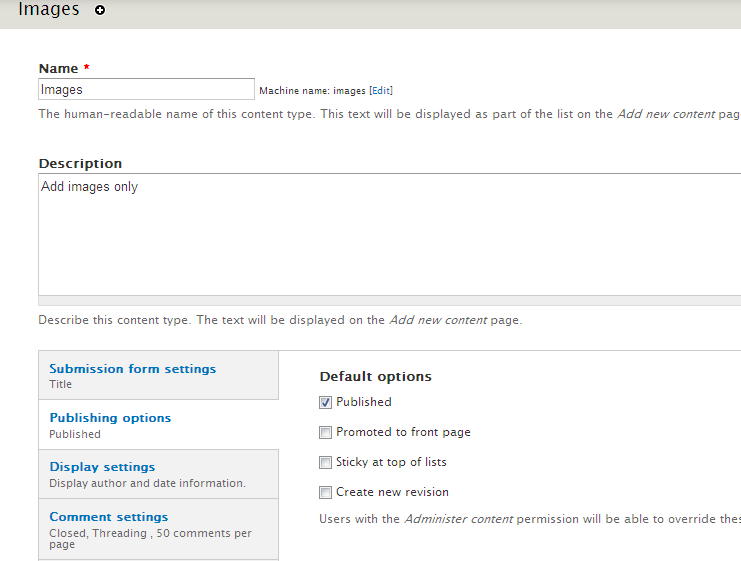I've noticed that the following does not work to unpublish nodes:
db_update('node')
->fields(array('status' => 0))
->condition('nid', $array_of_nids, 'IN')
->execute();
But it does if you follow up with the same update on the node_revision table. (But perhaps I should only be updating the status of the current revision (vid)?)
I found this confusing because the nodes in question do not use revisioning yet it seems that the revision table holds more authoritative data than the main node table (so if so, what's the point of node table?)
Can anyone explain how node and node_revision are related and therefore how to do a bulk update such as this 'properly'? (I'd prefer to avoid a costly loop of node_load, node_save if poss.) I'd like to understand the Drupal Way here.
(I have read node revisions which covers D6, but that did not give me the understanding I was after.)

 And later it node/edit area it has a separate tab to enable/disable it
And later it node/edit area it has a separate tab to enable/disable it